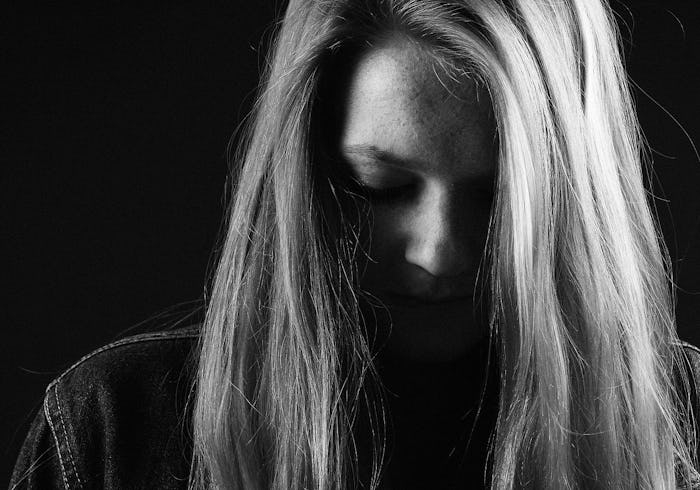Postpartum depression, or PPD, is a very serious illness that affects many new mothers after giving birth. But as common as the illness is, there is still a negative stigma associated with the condition. If you are uneasy about seeking professional help managing your feelings, there are some reassuring things to know about postpartum depression that could take away the unwarranted shame and help you on the road to recovery.
According to the March of Dimes, postpartum depression typically appears within the first three weeks after delivery, but can occur any time after giving birth. And, as WebMD mentioned, unlike the baby blues, the symptoms of postpartum depression do not go away within a few weeks. Instead, they can last for several months.
You may be feeling sad or even ashamed about the way you're feeling, but it's important to talk to your doctor about what you are experiencing. The March of Dimes points out that postpartum depression can have a negative impact on your ability to bond with your baby and can lead to issues with your baby's development and behavior.
If you are working with a therapist, you should know that you are not alone. They likely have encountered other women who have experienced the same feelings of sadness, self-doubt, and regret. They have likely listened to stories of mothers who wanted to run away from it all or even inflict harm to themselves or their child. But most importantly, your therapist is equipped with the tools to help you on the path to recovery.
If you are suffering from postpartum depression, it's important to seek help from a professional. But sometimes appointments are tough to get, so until then here are a few things about postpartum depression until you can get in to see someone.
1It's Not As Rare As You Think
Believe it or not, you are not the only mother your therapist has treated for postpartum depression. In fact, the illness is more common than you may think. According to Psychology Today, nine to 16 percent of new mothers will experience postpartum depression.
2It Doesn't Make You A Bad Person
No one plans to deal with postpartum depression, which is why you may be feeling bad about being anything less than elated about being a new mom. According to the Mayo Clinic, a drop in hormones after childbirth along with emotional issues can contribute to a mother's postpartum depression.
3It's Not About The Baby
You may not be ready to fully embrace your role as mom, but your depression has nothing to do with how you feel about your baby. In fact, according to Psychology Today, 50 percent of moms experience PPD symptoms before baby is born.
4It Is A Medical Condition
Some may tell you to just snap out of your postpartum depression, but the truth is that it's not that easy. Postpartum depression is a medical condition and, with help, you can keep your symptoms under control as Cosmopolitan mentioned.
5It Requires An Objective Opinion
One of the things that can make talking to a therapist more effective than friends or family members is that therapists can be completely objective, as She Knows pointed out. They can help you understand why you are experiencing certain feelings and identify a plan for recovery.
